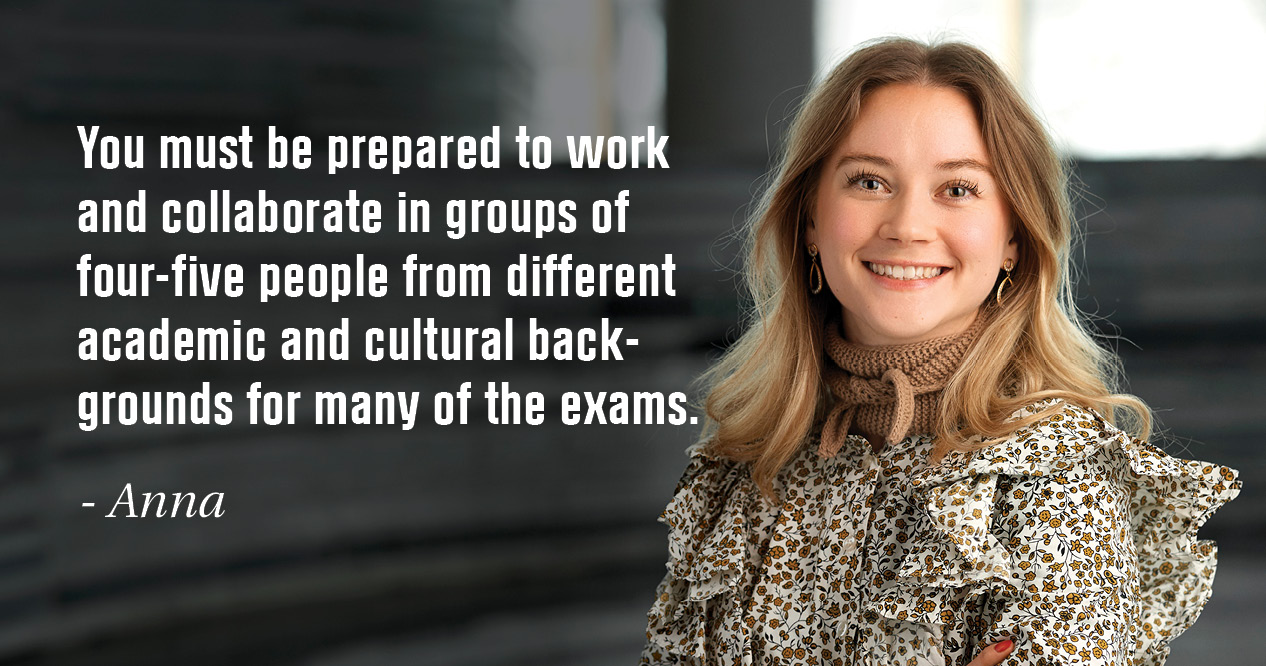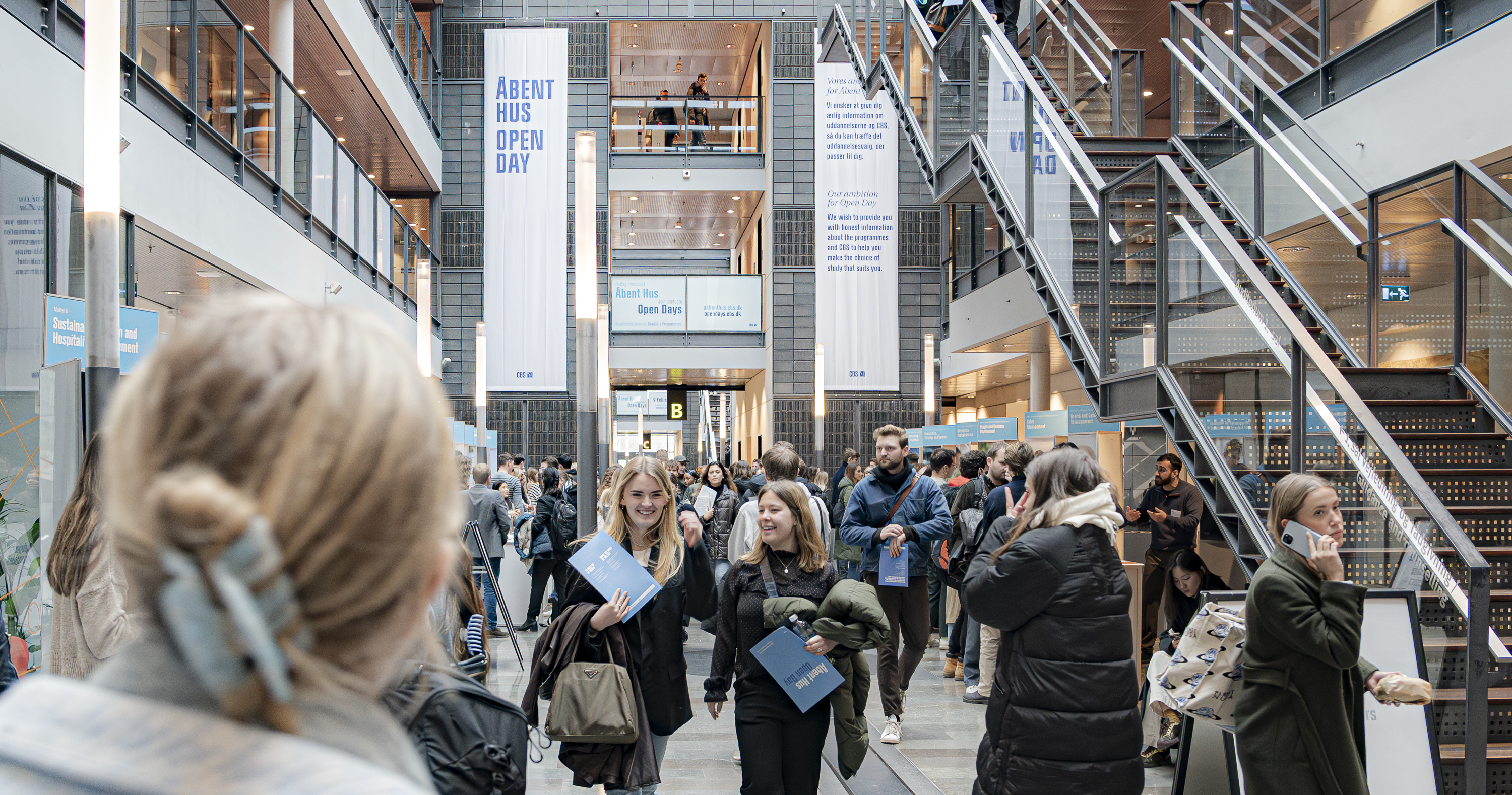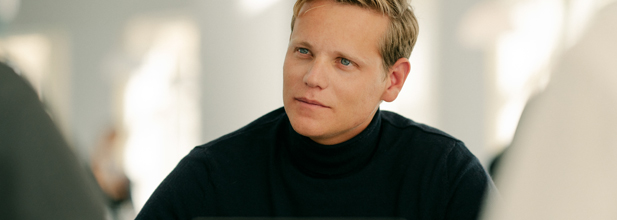As organisations have different challenges, environment, network, cultures etc. you always have to look at the issues from many perspectives to get the best understanding of the organisation you are investigating/examining. And you will learn that there are many different views to the same problems or challenges.
This is the reason why you never find a definitive answer to organisational problems, and that is the reason why you will not end up with a management toolbox by studying the SOL programme.
You learn about the present understanding of organisations, about organisations as actors in a broader society and thereby understand that organisations are all different. To handle problems in organisations and to be able to find the best solutions for each organisation, you need a broad knowledge and insight into many different perspectives.. It could be e.g. , how to mobilise resources in organisational growth, or it could be knowledge about what happens with group dynamics when organisations implement change and innovation processes.
You will learn about processes ranging from individual level, to groups, organisations and society, where you encounter topics such as strategy, identity, branding, innovation, organising, accounting, ethics, and leadership.
During the programme, you have various opportunities to create your own academic profile.
Electives
On the 3rd semester, you can choose to study courses of your specific interest. CBS offers a large number of electives within a wide range of topics. You can also choose to take electives at other Danish universities. The electives you choose have to be relevant for your programme.
See the current selection of CBS electives on Single courses and electives - Master.
Minor
On the 3rd semester, you can also choose to study a so-called minor. A minor is a package of electives within a specific academic area. Typically, it consists of 3 courses. By taking a minor, you strengthen your competences within a specific area of interest, and you can use it to qualify for specific jobs or industries.
See the current selection of CBS minors on Minors
Exchange
Many students choose to go on exchange on their 3rd semester; usually at one of CBS’ more than 300 partner universities. When you go on exchange through CBS, you do not have to pay for the teaching at the foreign university (with a few exceptions), and you can bring your SU (student grant).
Find a list of all CBS partner universities here.
Academic internship
You can choose to replace some of your electives with a so-called academic internship. The academic internship consists of an internship period at a company, which is then completed with a project report. You can do the internship at a company in Denmark or abroad.
When doing an internship you get the opportunity to relate theory to practice and reflect on the academic training you receive at CBS in a practical setting. Therefore, the project report and work assignments during your internship have to be relevant to your study programme.
CEMS - Master in International Management programme
On SOL, you can apply for the CEMS - Master in International Management programme. CEMS MIM is a double degree programme, which gives you the opportunity to add a second degree in international management to your CBS degree. This means that you will get both the MSc degree and the CEMS in International Management degree.
CEMS is a 1-year programme, which you study in combination with your CBS degree in your 3rd and 4th semester. Part of it takes place at one of the other CEMS universities abroad.
Learn more about CEMS / Master in International Management.
Master's thesis
Your 2nd year is completed with a master's thesis. You choose the topic you want to write about, which allows you to focus on a specific topic of your interest. Typically, you write your master's thesis with a fellow student.
Theoretical approach and abstract theories
Particularly useful skills are the ability to analyse theoretically, to be open-minded, curious and critical, while not losing sight of the need for creative and focused practical action.
Students who do not expect a theoretical approach, and do not have the patience to explore abstract theories, will most likely find SOL tough.
Interest
Keeping up with current affairs
Students with an interest in what is going on in the world, and therefore know about the practical challenges and dilemmas, often find it much easier to understand and apply theories to practical management.
Applying theory in practice
Students find it particulary interesting to apply theory in practice and thereby getting a deep understanding of how leadership , organisation and strategy work and interact.
Studying in English
If you do not have a bachelor’s degree taught in English, we recommend that you read more about what to consider before applying for an English taught programme.
Read more about Teaching and literature in English on Teaching and working methods.
SOL has an international student profile which makes team, group and project work interesting. You feel you are a part of an international study environment and an international network without leaving Denmark.
Student life at CBS
Studying at CBS is much more than just preparing for and going to classes.
At CBS, there are more than 20,000 students with different backgrounds and nationalities. Teamwork is an essential part of studying at CBS both in classes and in extracurricular activities.
With more than 100 student organisations, you also have plenty of opportunities to engage and connect with students across programmes and classes.
Learn more about the vibrant student life at CBS, the student organisations, and the international environment on Student life.
For internationals
If you are an international student, we have gathered a lot of information about what it is like to be an international student at CBS and how you can prepare for life in Denmark.
Read more on For internationals.
Teaching
The teaching is both lectures and interactive and dialoged based.
Some courses have team-teaching where two teachers interact in the same session. In other classes teachers may use case studies, games and other exercises to improve the learning experience and make the best possible connection between theory and practice.
Read more on Teaching and working methods.
Exams
Several exams are written group projects based on studies carried out by the groups in actual companies in the Copenhagen area.
Some exams combine two courses to improve interdisciplinary learning and to prepare you for complex problem solving as in real life. Some of the written exams will be followed by an individual oral exam, and some of the individual written exams are projects, essays and scientific papers.
Through the exams, you will learn to articulate complex issues, both orally and in writing. This is important both in preparation for your career and for your studies.
Read more on Exams at CBS.
Time consumption
You should know that it is demanding to study in a graduate programme, and both the curriculum and workload is significantly higher than at bachelor level.
If you are studying on a full-time graduate programme, you should expect spending approximately 37 hours on average on your studies each week. The workload will vary during the year.
The time leading up to assignment submissions and exams can be hectic, and you can easily work more than 40 hours a week in this period. Preparing for oral exams can be especially time consuming, because you have to be able to explain and discuss the covered concepts and theories and learn things by heart.
Read more on Teaching and working methods.
Student job
Most programmes are quite flexible in terms of combining studies with a student job. Most students work a maximum of 15 hours a week in order to have sufficient time for their studies.
Studying in Denmark - for internationals
If this is your first time studying in Denmark, you may find teaching and exam formats, the grading scale and the academic calendar very different from what you are used to.
Read about everything you need to know as an international student studying at CBS on For internationals > Academic information.
What gets you the job?
You will learn to see the big picture, navigate complexity and to approach problems from many different perspectives.
The SOL programme provides you with the following competences/skills:
- Skills for dealing with complex and ambiguous organisational problems and situations
- Skills for redesigning, changing and improving the strategic and organisational resources for leadership
- A basis for creatively constructing, communicating and pursuing strategic vision
- Theoretical skills for positioning phenomena within relevant theories in organisations, strategy and leadership
These qualifications are applicable and relevant in a host of general management, consulting and research jobs. You will have analytical and hands-on insights that allow you to strategically engage in, facilitate and cultivate organisational change.
Career opportunities
Students often find employment in public or private organisations, industry or consulting.
They work within areas such as:
- analysis
- project management
- executive assistance
- operations
- HRM
- trainee
- consulting
- organisational change
Competence profile
In the competence profile you can find more information about the various competences you achieve on the programme:
Competence profile for SOL






